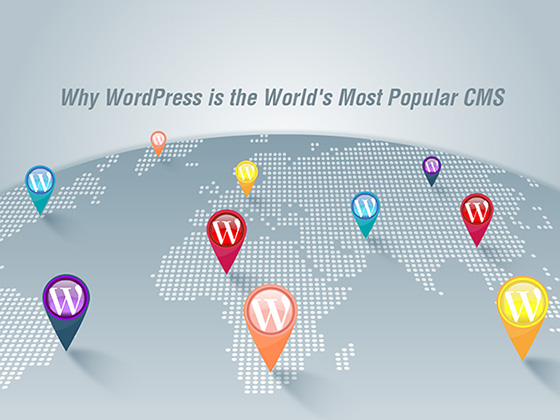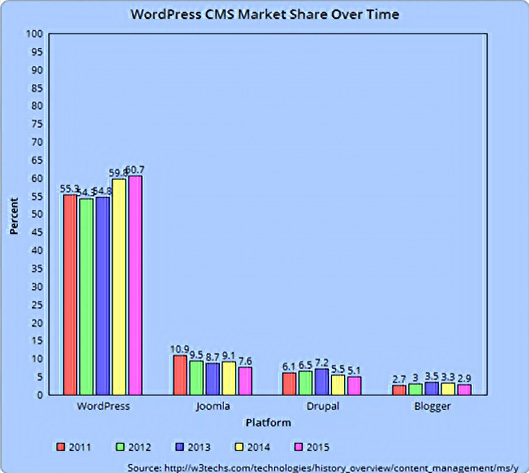
When more than 60 percent of the global CMS market uses WordPress software, there has to be a reason. There are actually a few.

Why WordPress Dominates the CMS Scene
It used to be that WordPress was the preferred platform for blogging – and still is – but it has gained substantial ground as the content management system (CMS) of choice for websites, too.
Designers, developers and other technical folks love it for its flexibility, but everyday users have flocked to the software for even more reasons.
- Open source: WordPress is an open-source platform, which means the general public has access to the source code. Any designer or developer with solid WordPress and coding knowledge can modify the code to customize the CMS. Best of all, because it’s open source, business and website owners are never locked in to one designer or developer – anyone can make modifications.
- Themes and plugins: With WordPress, there are literally thousands of themes (templates) with various layouts and designs, and you can build on your theme with any of the thousands of available plugins. With plugins, you can basically “add in” functionality to your website, such as a search bar, contact forms, or backend search engine optimization. There are many more plugins to make your CMS do exactly what you need.
- Cost-Effective: WordPress is free for anyone to download. Aside from that, it is also frequently updated by a community of WordPress developers, users and supporters. If your website does not require a custom CMS, this is a very good, cost-effective option. WordPress gives you unmatched flexibility, customization, and security…there is no need to spend more money on something that is already at your disposal, if you can avoid it.
- Ease of Use: WordPress is incredibly organized, which makes it user-friendly for just about anybody. Blogs, pages, images and user settings are easily accessible from the dashboard, and WordPress’ intuitive design makes updating your content simple and straightforward. This is a great feature for businesses that may have more than one person in charge of managing website content.
With WordPress as your CMS, you have a completely customizable content management solution that is easy to use, flexible, and easy on the wallet. It is a natural transition for businesses that want to increase their digital footprint with a focus on lowering costs and streamlining operations.
The Caveat
While WordPress is a very good CMS option, there are other solutions that may be a better fit for your website. Be sure to speak with a qualified, experienced consultant who can evaluate all of your specifications before you implement a different CMS.


